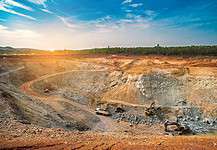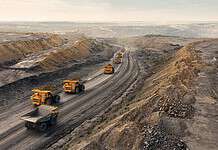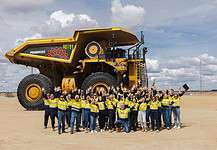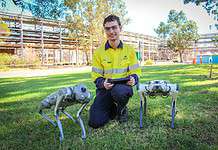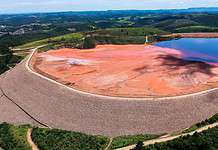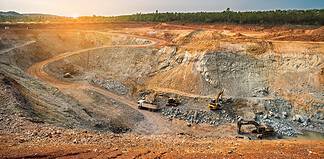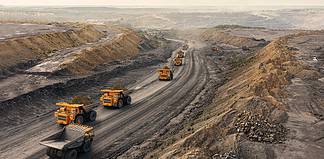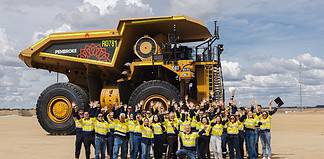Mining and Energy Services Council of Australia (MESCA) national manager Alex Stanojevic. All images: MESCA.
BY ELIZABETH FABRI
THE future competitiveness of Australia’s mining industry is synonymous with the health of its Mining Equipment Technologies and Services (METS) sector. But how can companies stay ahead amid an ever-changing digital landscape?
As technology rapidly advances, the opportunities and challenges for METS companies increase with it. We spoke with Mining and Energy Services Council of Australia (MESCA) national manager Alex Stanojevic about the next wave of growth for the sector and how his industry association facilitates collaboration.
Q. What does MESCA have planned for 2018?
The Mining and Energy Services Council of Australia (MESCA) is part of the Australian Industry Group (Ai Group). MESCA primarily engages with two key stakeholder groups; suppliers (members) and project proponents.
In 2018, MESCA is planning to deliver a busy schedule of events around major projects and supplier opportunities across Australia.
We’re looking to have 10-12 major project briefings around the country this year – that’s our wish list.
2018 will also see MESCA ramp up its policy and advocacy capability. This will be done in partnership with Ai Group and will result in and increased ability for member’s voices to be heard at both State and Federal Government levels.
Q. What are the biggest issues facing the sector at present?
- Digital disruption – This includes everything from cyber security (many companies are not taking this risk seriously enough), IoT, Industry 4.0, and digital supply chains. Companies must have robust integrated systems in place to accommodate these and similar threats.
- Energy security/policy/pricing – these areas are currently in state of flux and companies must adopt proactive strategic approaches to manage risk. Currently Australia has no clear energy plan and increasing power prices are challenging the viability of many industry sectors. As a nation we also need to agree upon a range of key issues including: what is the future of coal? What is the best way to integrate and phase in renewable energy sources? What will the impacts on the environment be, what role should gas play, and what is the true potential of HELE coal power stations or carbon capture technology? These issues require further debate and sensible policy outcomes.
- Innovation – Australia must invest more to support the development of an innovation culture. This must be an ongoing process to assist Australian METS companies to innovate. We can never stop and must always stay vigilant otherwise we will be overtaken by others that do.
- Social licence – The importance of social licence to mining and energy projects has increased exponentially in recent times.
Q. FMG Christmas Creek general manager Jim Herring was recently quoted saying one of the big issues facing METS companies is that in many cases mine managers have never heard of them. Do you agree that marketing is an issue?
I have no doubt the mine managers have a lot of people knocking on their doors. I myself have had a lot of cold calls that have come from people I have never heard from before, but you look at the product and it doesn’t take long to figure out whether the product – regardless of whether it is a known brand or not – is of value to you.
For marketing in general it varies – there’s no standard response. Some companies are extremely mature and have highly sophisticated systems and have got great websites, and e-marketing and e-commerce all sorted.
Some companies still don’t have a website on the smaller end of town but they are still in business and doing quite well. I think those sorts of places need to have that on their agenda for their capability development and improve it.
There’s certainly a space there for marketing to be improved, but some companies are doing it very well. I think most of them would know some of the deficiencies they have got; it is more about dedicating resources and prioritising them.

Q. I understand Industry 4.0 is the next focus area for METS companies. How does this compare to Industry 3.0?
Industry 4.0 is about advanced manufacturing. Companies cannot afford to ignore the disruption potential of this technology.
Industry 4.0 differs from 3.0 by its emphasis on cyber physical systems, which is a fancy way of saying that machines and sensors are connected via wireless or remote technology.
One of the best examples of this is the new wave of tracking and communications systems in underground mines.
Wi Fi technology has been adapted to function in underground environments and monitor everything from air quality to the movement of vehicles and personnel.
Similar applications of remote technologies are also being applied to automate mining operations; this includes driverless dump trucks, mining equipment and trains.
Q. Are mining operations heading towards Industry 4.0?
I suppose not many companies would be at 4, but it’s where the industry is going and needs to be.
Many would be at 3; they’ve got those systems that talk within their factories, they have computerised high-tech equipment that make things and systems monitor and record, but they don’t have cyber physical systems with sensors and remote monitoring and transmission, and collection of data.
It’s an ongoing journey. If we’re going to make high tech products, manufacturing systems will have to compete on a global base line, and I can guarantee Europe and other advanced economies in the world are all moving towards these advanced manufacturing platforms.
If you want to survive in Australia you have to be aware of those global trends and adopt the same, if not better standards, to give yourself a competitive advantage.
Q. Is QLD poised to become the national METS hub or are other areas showing promise, such as the WA Goldfields, Spencer Gulf and Hunter Valley?
METS hubs tend to spawn in areas surrounded by significant mining projects.
All of the areas mentioned above will no doubt go up and down with the tide according to developments in their regions.
In regards to QLD, when Adani and the GVK projects reach final investment decision stage and all approvals have been granted then I see no reason why the existing capability of QLD’s existing METS hubs should not also increase proportionately.
Q. How important is collaboration to the industry’s future?
Collaboration is essential to the future of the METS industry. It is at the core of everything MESCA does. MESCA project briefings are business development events, they only occur when contracts are on the table or are soon to be released.
Members have two opportunities to win work at the events. The first is to hear the project proponent and get and update on upcoming work packages; the second is to attend business opportunities forged over the post briefing networking and drinks sessions. MESCA members have repeatedly told me that they have won significant work as a direct result of attending MESCA events.
Q. What advice do you give to emerging METS companies looking to make their mark?
- Find ways to stay well informed on industry developments and emerging technologies.
- Develop your business development teams. Industry intelligence is becoming / has become a digital commodity, the days of “Bob” having a few contacts he can call upon are rapidly disappearing.
- Partner, network and collaborate with others in your industry
- Innovate or die.


